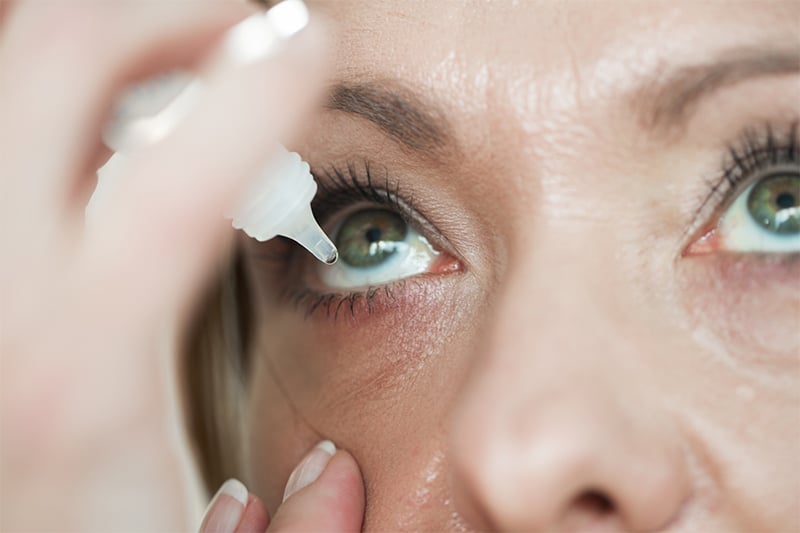Causes of Dry Eyes
- Antihistamines, decongestants and blood-pressure medications
- Diseases such as rheumatoid arthritis, diabetes, Sjögren’s syndrome and thyroid disease
- Environmental conditions such as smoke, wind or excessive sun
- Contact lens use
- Eye injury
- Eye or eyelid surgery
- Inflammation of the eye (conjunctivitis or keratitis)
Symptoms of Dry Eyes
The symptoms of dry eye typically occur in both eyes, and include the following:
- Stinging, burning or scratchiness
- Eye fatigue
- Sensitivity to light
- Difficulty wearing contact lenses
- Excessive tearing
- Blurry vision
Diagnosis of Dry Eyes
If you’re experiencing symptoms of dry eyes, it’s essential to schedule a comprehensive eye exam with one of our specialists. We use advanced diagnostic tools to evaluate the quantity and quality of your tears, as well as the overall health of your eyes.
Treatment of Dry Eye
We offer a variety of treatment options for Dry Eye Syndrome, tailored to meet your unique needs and the underlying cause of your condition.
- Artificial Tears (Lubricating Eye Drops)
These over the counter or prescription eye drops provide temporary relief by supplementing your natural tears and improving eye lubrication.
- Prescription Medications
- Restasis®: This prescription medication helps increase tear production by reducing inflammation in the eyes.
- Xiidra®: Another prescription medication that reduces inflammation to help increase tear production.
- Punctal Plugs
If your tears are draining away too quickly, we may recommend punctal plugs. These tiny devices are inserted into the tear ducts to help keep tears on the surface of your eyes for longer periods, improving moisture retention.
- 4. Lifestyle and Environmental Changes
Our team may recommend simple lifestyle adjustments, such as using humidifiers, taking regular breaks from screens, wearing protective eyewear, or adjusting your environment to reduce dryness.
- 5. Omega-3 Supplements
Omega-3 fatty acids, found in fish oil and other supplements, may help reduce inflammation and improve tear production, providing relief from dry eye symptoms.
In more advanced cases of dry eye syndrome, a comprehensive and targeted treatment approach may be necessary. Our doctors will evaluate your specific condition and recommend the most effective treatment plan to address your symptoms and improve ocular health


